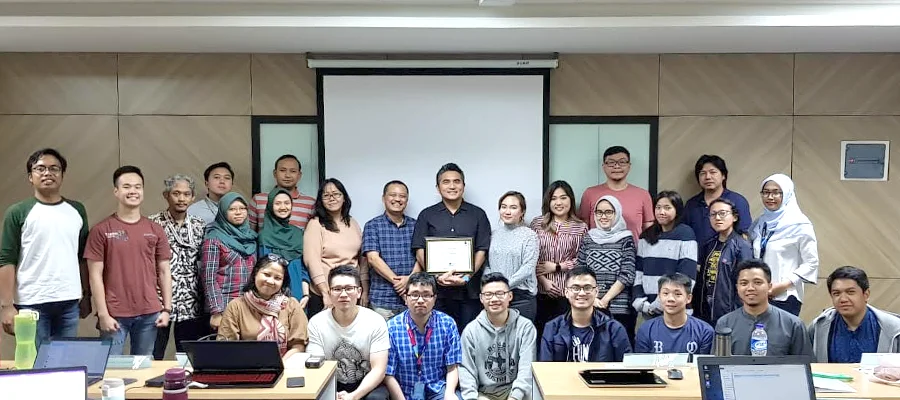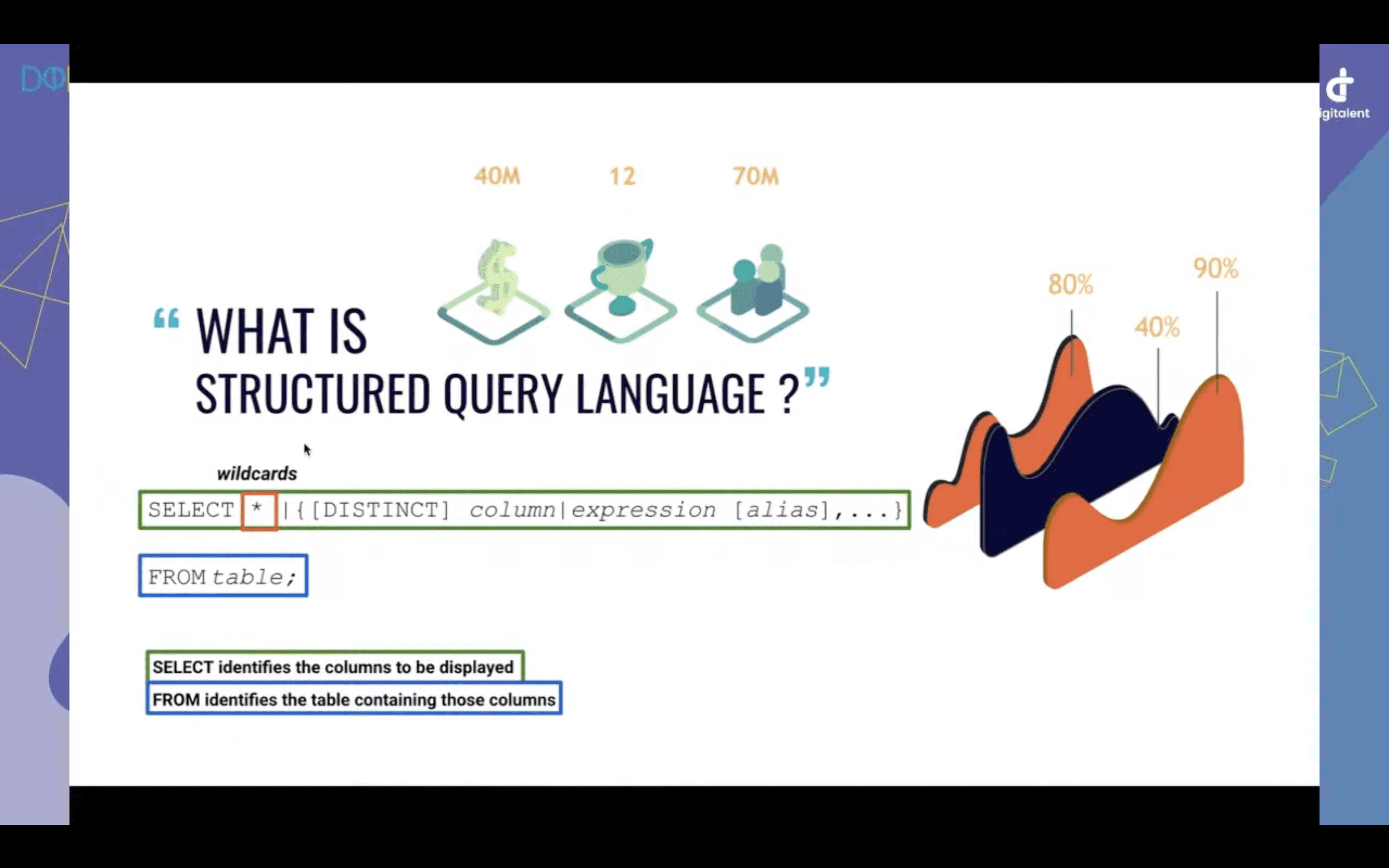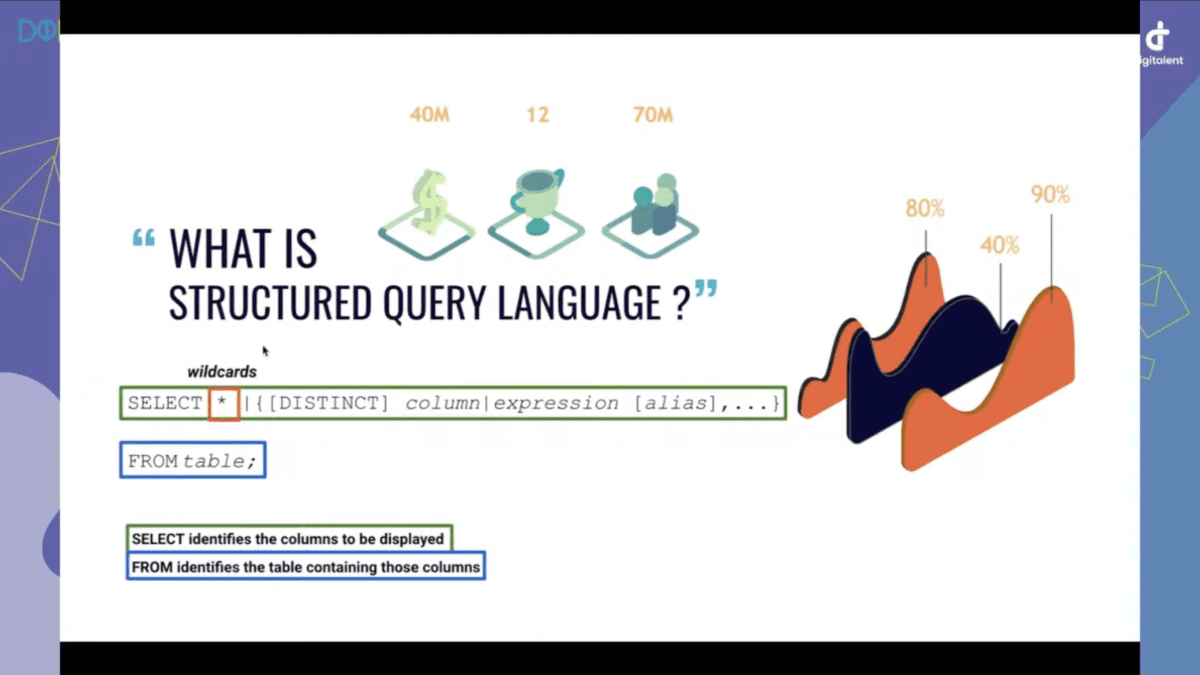
Hazing-free, OMB UMN 2022 Focuses on Instilling Values on Participants
September 19, 2022
UMN Postgraduate Majors and Its Tuition Fees
September 19, 2022
Tangerang – The increasing interest in the Data Analyst profession has also increased interest in learning skills related to Data Analyst. One of them is a database language such as Structured Query Language (SQL). SQL is a programming language often used to perform data processing to find insight from each processed data. Most companies must have a database to generate information in making decisions. It is the data analyst who plays a role in processing it. On this occasion, DQLab, together with the Ministry of Communication and Information Technology, in a DTS live session, gave material about SQL and Data Analyst, brought directly by Tantut Wahyu as Data Analyst at Ruparupa.com. This live session was held online on Friday, March 18, 2022.
In the opening discussion, Tantut explained three positions for data practitioners: Data Engineer, Data Analyst, and Machine Learning Engineer. Those who can occupy the three positions can be called Data Scientists. The Data Engineer is in charge of cleaning, collecting, and providing clean data to the Data Analyst. Data Engineers will collect data, then make it into a product such as Data Warehouse. If the Data Engineer has processed the data, then the data will be used by the Data Analyst.
“Data Analyst is the person who knows best about the business’ situation. This can be seen from many parameters, such as sales, orders, traffic, the number of new customers,” Tantut said.
Data Analyst is one of the professions whose job is to explore data prepared by the Data Engineer. The exploration carried out by the Data Analyst is like seeking insight into historical data. According to Tantut, the Data Analyst is in charge of analyzing business processes, campaigns, and every marketing activity that generates new insights.
Machine Learning Engineer performs analysis using machine learning algorithms and programming that is quite complex to predict the future, aiming to solve problems that the company has.
“Data science is not only about data scientists. Data Scientist is part of data science,” Tantut said.
There are five data science life cycles, namely collecting, cleaning, EDA, model, and deployment. Collecting and cleaning are the duties of the Data Engineer. After being processed by the Data Engineer, it will be forwarded to the Data Analyst for analysis. Machine Learning Engineer is responsible for modeling and deployment as the final step.
Entering the discussion of queries, queries are one of the techniques used by data practitioners to pull data to get the data values we need. A query can also be interpreted as the information received or retrieved from a database. It is used to manipulate, add, delete, and change data. When using a query, the user will type instructions in the form of a set of codes that the database can understand. SQL is the language used to create queries.
“All data practitioners need SQL. SQL is the heart of data practitioners,” Tantut said.
There are several advantages to using SQL. The first is that SQL is easy because the functions of SQL are similar to Excel, so even those who are just learning SQL will find it easy. Second, SQL is closely related to big data, namely R and Python. Thirdly, SQL is frequently used by data practitioners.
SQL is one of the essential skills that all data practitioners need to master, especially Data Analysts. SQL is not limited. All educational backgrounds, even non-ITs, can learn SQL. Experience the benefits of learning SQL with DQLab.
By Agnes Nurlisa | DQLab
English translation by Levina Chrestella Theodora
Kuliah di Jakarta untuk jurusan program studi Informatika| Sistem Informasi | Teknik Komputer | Teknik Elektro | Teknik Fisika | Akuntansi | Manajemen| Komunikasi Strategis | Jurnalistik | Desain Komunikasi Visual | Film dan Animasi | Arsitektur | D3 Perhotelan , di Universitas Multimedia Nusantara. www.umn.ac.id





